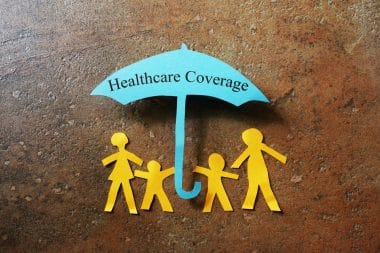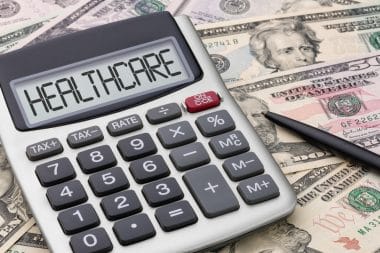Countless people around the world don’t have the luxury of health insurance access, leaving them vulnerable to hefty medical bills in the event of an emergency. Depending on the nature of health care, some individuals have left footing bills worth thousands, which leaves them in a state of financial despair.
Health insurance isn’t always available, especially for individuals in low-paying jobs who cannot afford the premiums. Fortunately, if you don’t have access to health insurance, there are still plenty of resources available to ensure you get the medical care you need.
Why Do Some People Have No Health Insurance?
A lot of careers come complete with health insurance as part of the job, so millions of people don’t have to worry about their insurance. However, in many cases, it’s incumbent upon the individual to pay for health insurance privately, which many choose not to do for a few reasons:
- Cost: The cost of many health insurance plans can be astronomical nowadays, especially for those part of an ‘at-risk’ demographic like the elderly. Those already struggling to make ends meet each month will find it impossible to add a sizable insurance bill on top. Hence, many people cannot afford the monthly health insurance bill.
- Pre-existing conditions: A lot of health insurance providers will charge extremely high rates for individuals with certain pre-existing conditions. While this is understandable, as such individuals are much likelier to require ongoing care, the exorbitant costs can be too much for many people to handle.
- Job: A lot of career paths come without health insurance all-inclusive, so individuals are forced to look privately for health insurance. Private insurance is often a lot more expensive than plans that come with one’s work, so many choose not to get it at all.
- Risking It: Many perfectly healthy individuals who are not in need of any health care or treatment and therefore choose not to get a plan. Those in their 20s, 30s or even 40s and have rarely been sick will instead save up those sizable insurance bills for a rainy day.
The unfortunate problem with individuals who have no health insurance is the reluctance to seek out medical care when it’s needed due to the fear of a huge bill at the end. This leads to much worse outcomes in health and the onset of health problems that could’ve easily been avoided with the correct care.
If you didn’t have any health insurance but want to know your options, check out these helpful suggestions below:
1. Emergency Rooms
In the event of a health emergency, you should be worrying about your health and not your bank account. You don’t need any kind of health insurance to visit a hospital emergency room, although you’ll usually have to pay the full price of treatment.
Having said that, there are plenty of hospitals that offer discounted rates or payment plans for those who can’t pay the full price upfront. This allows people to gradually pay off the health bill in installments, a vital respite if you struggle to pay your bills each month.
2. Check Public Plans
Many national governments will offer their own healthcare schemes for citizens who don’t have insurance coverage. Get in contact with your provincial or nationwide healthcare body and get the full lowdown on your rights.
If your country doesn’t offer full coverage plans, there are still many national initiatives that provide help to those who need it most. In any case, uninsured individuals may qualify for reduced rates in the event you do end up in the hospital.
3. Community Care
If your local hospital charges too much for the care, it’s worth checking out any community healthcare providers in your local area, even if it’s for a quick check-up. These organizations often benefit from government funding and provide care and cheap rates to those without any health insurance.
Many community care centers are set up for specific chronic illnesses, which will usually require ongoing and often costly care over many years. Local clinics and healthcare centers have long provided care to those unable to acquire health insurance.
4. Research All Your Options
Many individuals in medical emergencies won’t be diligent in researching the options, resulting to settle on the nearest clinic or hospital. What people don’t realize is that individual hospitals, doctors, and clinics can charge vastly imbalanced rates for the same kinds of treatment.
Make sure you thoroughly research all of the options in your local area. You can even consider traveling further afield if the costs are worth it.
5. Save On Prescriptions
Those requiring ongoing prescriptions are often the ones left with the biggest bill at the end of each month. Medication can be very expensive, but it doesn’t have to be if you think smart.
Some pharmacies will offer the medication at cheaper rates than others, and there are also discount cards you can sign up for, which can help you make huge savings each month. More info on prescription discounts can be found here.
6. Pay The Full Amount Upfront
A lot of healthcare organizations will offer lower overall rates if patients agreed to pay the complete amount upfront. While this won’t always be possible, if you have the money available, it’s advisable to pay it off as soon as you can.
Structured payment plans are usually available but will add a premium to the overall cost, which can hurt your finances in the long run.
Concluding Remarks
Having a comprehensive health insurance plan is a vital safety net that drastically improves your quality of life and healthcare. But it’s also an unfortunate fact of life that many individuals simply cannot afford health insurance, especially those with long-term health conditions.
If you don’t have health insurance, it’s important not to despair as there are several options open. It’s always a good idea to have a financial nest egg saved up in the event of a medical emergency. With the money available upfront, your overall medical bill will cost far less than an installment plan.
It’s also important to look for any community care options that’ll often provide subsidized healthcare. As well as this, many clinics and pharmacies will have varying discount programs which can lead to tremendous savings. For example, discount cards can give patients up to a whopping 80% of all prescriptions.








Reply